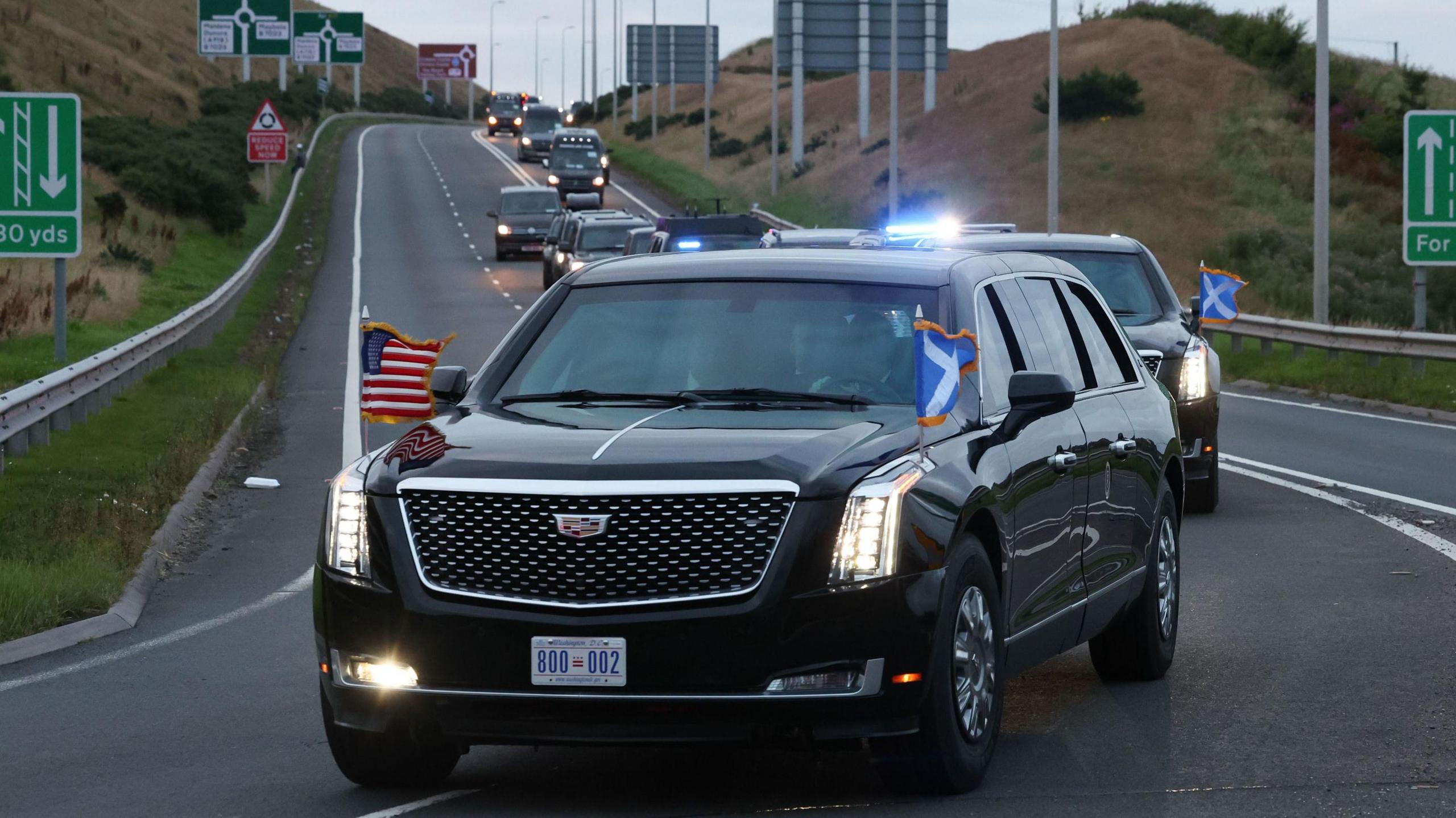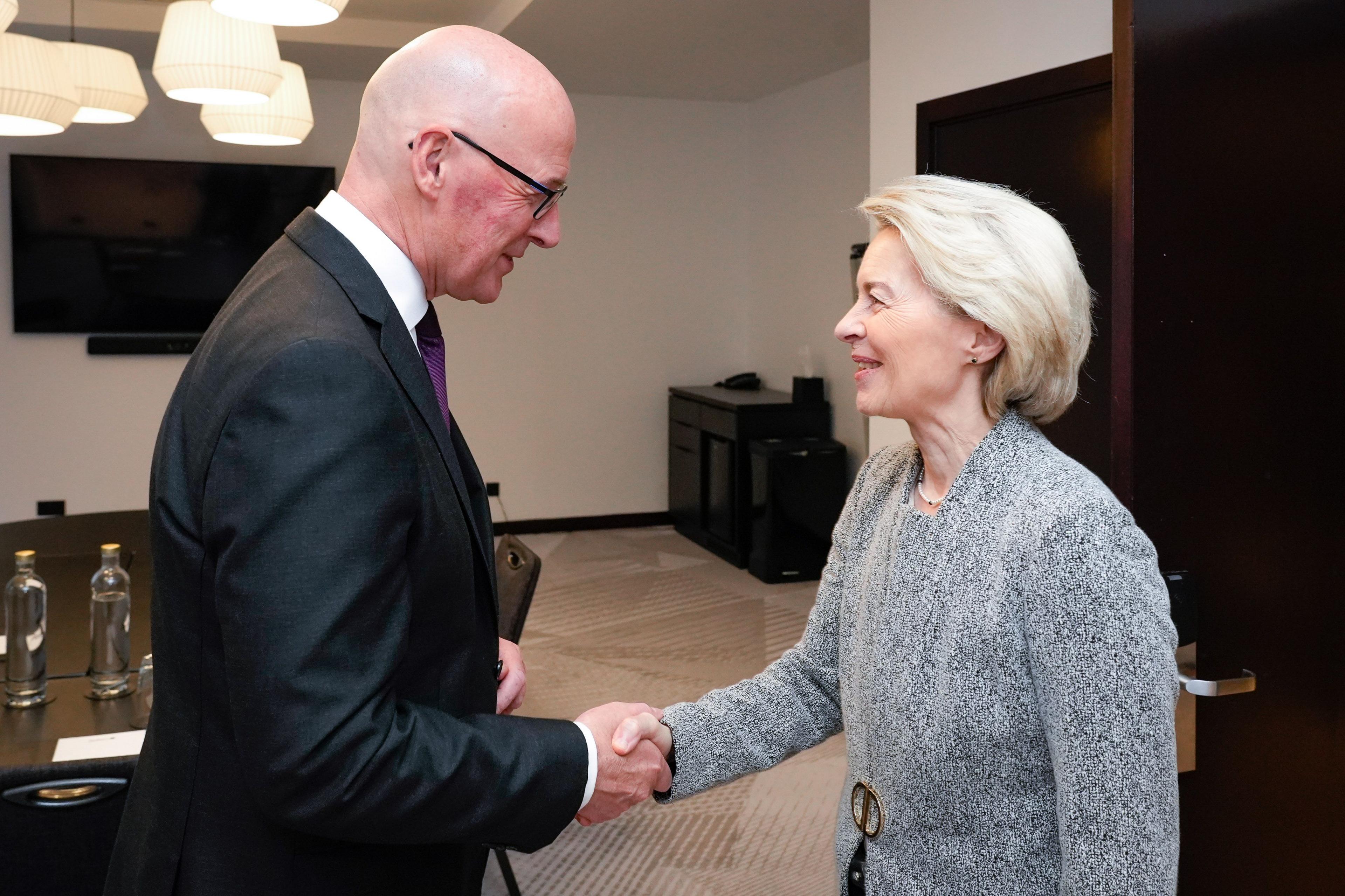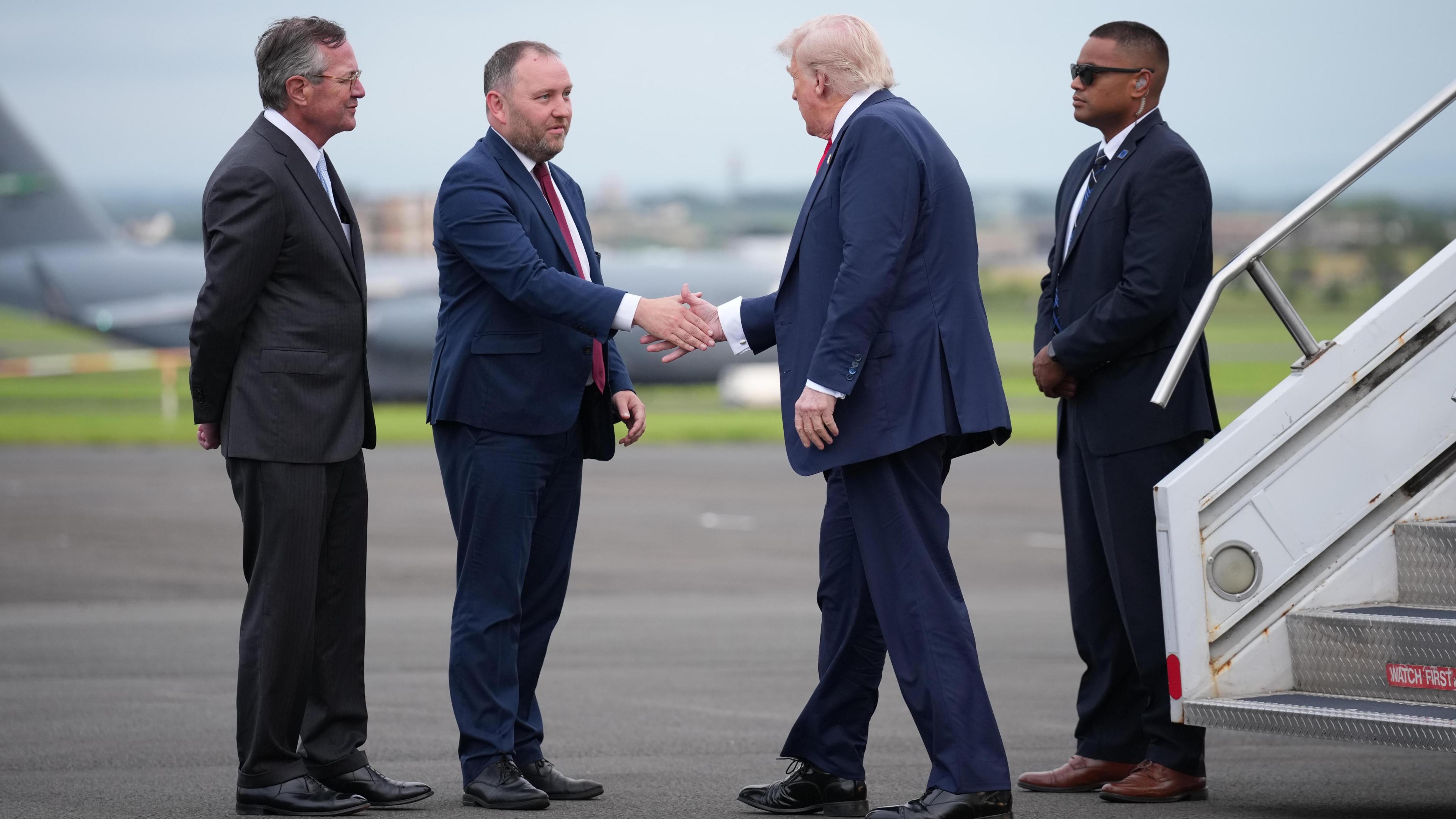Trump visit teases glimpse of independent Scotland

President Trump broke with convention to fly the saltire when he arrived in Scotland
- Published
There was a moment over the weekend when it seemed almost as if Scotland had become an independent country and somehow I had missed it.
That was when Donald Trump's motorcade swept through Ayrshire and I saw the president's famous armoured car adorned with the flags of the United States and the saltire of Scotland.
Conventional diplomacy suggests that it should be the UK's union flag that flutters alongside the stars and stripes.
When it comes to Donald Trump, it seems there are no conventions from which he is prepared to depart. Expecting the unexpected is the new normal.
First minister John Swinney has thrown in his own element of surprise during the president's visit - an updated strategy for achieving independence, external.
There will be those who think the timing is designed to ensure his proposals are lost in a flurry of Trump-related headlines, on the basis that Swinney has no guaranteed route to another referendum.
Starmer and Trump meet as Swinney vows to press for tariffs cuts
- Published28 July
In pictures: President Trump's private visit to Scotland
- Published29 July
We know from the UK Supreme Court's ruling, made in a case brought by the Scottish government, that there can only be another referendum if the UK government agrees.
The current prime minister, Sir Keir Starmer, has made clear that he does not.
An alternative reading of the timing might be that the first minister is enjoying an elevated status during the Presidential visit.
He is due to meet Donald Trump where he intends to raise issues of both domestic and international concern including the humanitarian crisis in Gaza.
This meeting is likely to take place around the opening of a new Trump golf course at the family's Aberdeenshire resort on Tuesday.
It is not clear whether this meeting has been scheduled by the White House or by the Trump Organisation, such are the blurred lines between Donald Trump's personal and presidential interests.
Swinney has already had 40 minutes of face-to-face talks with the EU Commission president, Ursula Von Der Leyen on a range of issues during her visit to Scotland to agree an EU-US trade deal.

First Minister John Swinney met with the European Commission president Ursula von der Leyen on Saturday
These are the sorts of engagements the leader of an independent state is afforded. Less so the leader of a devolved government with no direct responsibility for foreign affairs.
Regardless of the timing, it is worth taking a look at what Swinney is proposing.
Essentially, his idea is that if the SNP wins a majority of seats at Holyrood in the 2026 election, that should be enough to secure another referendum as it did in 2011.
My own view is that this kind of political outcome would certainly make UK supporting parties sit up and take notice.
But is a result of this kind likely?
At first glance the answer is no. The SNP is far less popular now than it was in 2021 and the party lost to Labour in last year's UK general election.
The current trend in opinion polls suggests the SNP is the first placed party in Holyrood voting intentions with around a third of those expressing a preference leaning towards them.
Perhaps the party's gamble is that the constituency vote in 2026 is so fragmented with the rise of Reform UK and potentially smaller parties like the Liberal Democrats and the Greens, that a third of the vote could be enough.
Independence deadlock
Note that winning a majority of seats is nothing like the test the former first minister Nicola Sturgeon toyed with.
She suggested a majority of votes for the SNP would be required in an election to break the independence deadlock with the UK government. That is a higher bar to cross.
There is another interesting aspect to what John Swinney has said.
His party used to call for "both votes SNP" at Holyrood elections covering the constituency and regional list elements of the contest.
In an interview on BBC Radio's Good Morning Scotland programme, Swinney said that he wanted voters to back the SNP in the constituency ballot and use their list vote to back the independence cause.
That appears to be a strategy to include other independence supporting parties like the Greens and Alba - encouraging their voters to back the SNP in local constituencies while being open to SNP supporters shopping around on the list.

Labour's Ian Murray, the UK government's Scottish secretary, greeted President Donald Trump on the tarmac
Above all, Swinney wants the SNP to retain power and if possible to maintain an independence supporting majority in the Scottish Parliament, even if that involves a rainbow of parties.
There will be further opportunity to pick over the details of these plans when Swinney presents them to SNP conference in the autumn.
He has been under pressure from some in his party to give independence greater priority at a time when Swinney himself has been stressing his commitment to delivering on devolved issues like improving the NHS and other public services as the best way to reconnect with voters.
One senior SNP figure told me the first minister was "walking a tightrope" on independence.
The more he talks about it, the more he risks alienating those who want him to prioritise health, education and tackling the cost-of-living crisis.
The less he talks about it, the more he risks alienating SNP supporters and activists who he needs to motivate to campaign for the party in the coming months.
It's a very difficult balance for him to achieve and one that is not without the potential for contradiction.